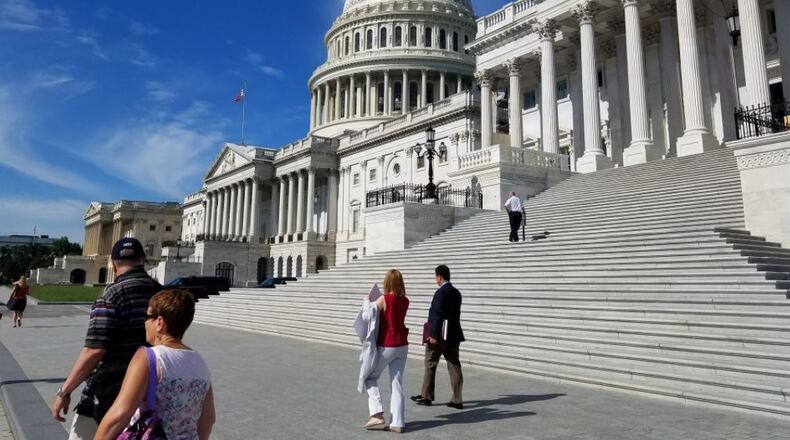A House spending bill that funds the Internal Revenue Service would not only block the IRS from issuing penalties over the 'individual mandate' that requires people to buy health insurance under the Obama health law, but the fine print also prevents the tax agency from fully cracking down on some questionable tax shelters, and from clarifying how taxpayers deal with certain complicated situations involving federal inheritance taxes.
The restrictions come under the headline of "None of the funds" - a powerful tool employed by the Congress to block the Executive Branch from using money to enforce certain policies.
The big headline from the Financial Services Appropriations bill is the effort to ensure that the individual mandate penalty is not enforced - as usual when it comes to legislation, just reading the language of the bill doesn't tell you anything, unless you are familiar with the underlying details of the federal law that is involved - in this case, the Obama health law:
Credit: Jamie Dupree
Credit: Jamie Dupree
That funding restriction on the individual mandate is one of 59 different examples in this 2018 spending bill that would hold back on money for certain actions by the Trump Administration - here are some other examples from the measure:
+ House bill limits IRS effort to crack down on charitable contribution tax avoidance scheme. The bill specifically notes Internal Revenue Service Notice 2017- 10, which was issued on January 23, 2017. That announces how the IRS is limiting a tax shelter which had apparently allowed taxpayers to make larger charitable deductions after investing in a conservation easement transaction. "This notice alerts taxpayers and their representatives that the transaction...is a tax avoidance transaction," the IRS stated. But the language of this House bill would not allow the IRS to pursue penalties against taxpayers who used this to avoid paying federal taxes in the past, as the bill specifically says the IRS could only block such transactions in the future, after January 23 of this year, when the IRS notice was issued.
Credit: Jamie Dupree
Credit: Jamie Dupree
+ House bill blocks IRS from issuing new rule related to estate taxes. The next section of this appropriations bill would also stop the IRS from issuing a new rule that clarifies restrictions on how inheritance taxes should be dealt with when liquidating certain properties held by corporations and partnerships. The bill language would also block the IRS from issuing "similar amendments to such regulations." It was not immediately apparent why a House panel would single out this regulation, though Republicans have made clear they want to abolish "death taxes" as part of a larger plan to reform the tax system.
Credit: Jamie Dupree
Credit: Jamie Dupree
These two specific "None of the funds" provisions were not part of the larger "Omnibus" funding measure that was approved earlier this year by the Congress, a spending plan that expires at the end of September, the end of the 2017 fiscal year.
+ House bill blocks new safety measures on table saws. As part of the funding for the Consumer Product Safety Commission, which is included in this spending bill, this House plan would block the CPSC from pushing ahead with a plan to require more safety measures for table saws. Just three days before President Donald Trump took office, the CPSC issued a 431 page proposed rule arguing for improved safety measures, saying "existing data indicates that currently available safety devices, such as the modular blade guard and riving knife, do not adequately address the unreasonable risk of blade-contact injuries on table saws." This House bill would block any funding to implement that proposed rule.
Credit: Jamie Dupree
Credit: Jamie Dupree
+ Don't touch my post office. Like other recent funding bills, this plan also includes a general prohibition on consolidations at the Post Office, specifically ruling out any effort by the federal government to "consolidate or close small rural and other small post offices." This bill also continues the yearly requirement for the Post Office to deliver mail six days a week. The Post Office has made noise in past years about getting rid of delivery on one day a week, to save money.
Whether any of this gets voted on by the full House in July is unclear. The full Appropriations Committee must still vote on the Financial Services bill before it could get sent to the House floor.
With only 13 scheduled legislative days between now and Labor Day - all of them in July - it is obvious that the dozen spending bills that fund the operations of Uncle Sam are unlikely to be approved by the end of the fiscal year, on September 30.
About the Author
The Latest
Featured







